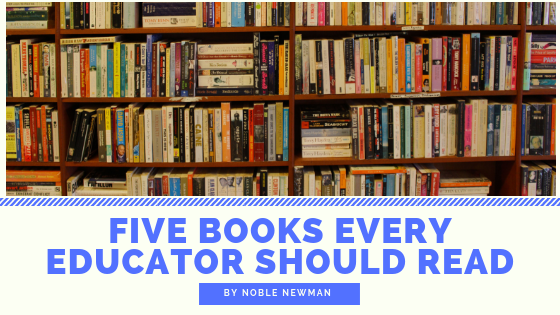Both novice and highly experienced educators can benefit from reading the latest books on the field of teaching. With the wealth of information out there, it can often be difficult to discern which books should make the cut. Every educator’s library of personal books should ideally contain traditional learning tools that have stood the test of time as well as some of the latest books written to bring to light new research and methods of teaching. Here are a few of the top picks that educators should put on their must-read list:
SEVEN MYTHS ABOUT EDUCATION – DAISY CHRISTODOULOU:
This short book packs quite a punch, encouraging its readers to examine and challenge several traditional teaching methods and views. Although you may find some of the ideas in disagreement with your personal beliefs about education, exploring the controversial issues in depth will still be a benefit for every educator.
BRINGING WORDS TO LIFE – ISABEL L. BECK, MARGARET G. MCKEOWN, AND LINDA KUCAN:
Every English teacher should cherish this book, providing the most comprehensive model on teaching vocabulary to developing readers and writers. The simple three-tier model offers guidance and tips on how to best serve students as they expand their vocabulary skills.
MAKE IT STICK – PETER C. BROWN, HENRY L. ROEDIGER, AND MARK A. MCDANIEL:
This book explores the science behind learning and the techniques needed to make education most effective. The authors use their research to present practical ways to increase learning skills rather than mere rote memorization.
TRIVIUM 21C – MARTIN ROBINSON:
By using the traditional triumvirate of grammar, dialectic, and rhetoric modeling, this book offers a system of educating the youth in an uncertain world. Robinson seeks to ensure that all three concepts are in place so that children effectively gain knowledge, acquire questioning skills, and learn ways to express themselves.
URBAN MYTHS ABOUT LEARNING AND EDUCATION – PEDRO DE BRUYCKERE, PAUL A KIRSCHNER, AND CASPER D HULSHOF:
This book seeks to debunk many common myths flooding classrooms and leading educators down the wrong path. By drawing on a wide variety of evidential points, the authors can effectively dispel many of today’s most common falsehoods about how children learn.

